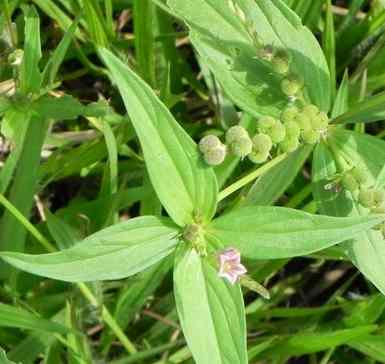
support@yorubalibrary.com
+2348073529208, 07038599574

One of popular and important plant in Yoruba land, that serve dual purpose of food and medicine is Òtílí, known botanically as Cajanus cajan. Widely known in English as Pigeon Pea, this plant is not only a source of nutrition but also a key ingredient in various Yoruba herbal remedies.
Òtílí is both cultivated and found in the wild across Yorubaland. It is valued for its seeds, leaves, and roots, all of which have unique health applications. Traditional herbalists use Òtílí in treating common and chronic illnesses, while families also prepare it as food for its protein-rich value. Its dual purpose as food and medicine makes it one of the most sustainable plants in Yoruba land
Key Facts
Category: Leaf/Seed
Botanical Name: Cajanus cajan
Common Name: Pigeon Pea
Yoruba name: Òtílí
Igbo Name: Nil
Hausa Name: Nil
Characteristics of Òtílí
• Growth Habit: Shrubby plant that grows up to 1–3 meters tall.
• Leaves: Compound with three leaflets, green and hairy underneath.
• Flowers: Yellow or yellow with red markings, appearing in clusters.
• Seeds: Small, round peas contained in elongated pods; seeds can be green, brown, or reddish.
• Habitat: Commonly cultivated on farmlands, especially in dry regions with well-drained soil.
Traditional Uses in Yoruba Medicine
1. Management of Malaria and Fever
Decoctions of the leaves are commonly used to treat fever and malaria. The plant is often combined with other herbs to form effective ant-imalarial mixtures.
2. Support for Menstrual and Reproductive Health
Òtílí leaf infusions are used to regulate menstruation, manage menstrual pain, and support postpartum care in women.
3. Treatment of Diarrhea and Stomach Disorders
The leaves and roots are boiled to prepare remedies for diarrhea, dysentery, and other gastrointestinal issues.
4. Pain Relief and Inflammation Control
Its anti-inflammatory properties make it useful in managing arthritis, swollen joints, and other inflammatory conditions.
5. General Blood Tonic
Some Yoruba herbalists use Òtílí as a blood-strengthening herb, especially when mixed with other roots and bark in herbal tonics.
Want to treat common ailments such as Malaria, Cough, Measles, Typhoid, Pile etc naturally without spending much? Grab a copy of Authentic Herbal Solutions: 15 Common Ailments & Their Natural Cures. A practical eBook recommended for everyone regardless of tribe, religion or association. Order below or Download sample here
AUTHENTIC HERBAL SOLUTION #4KOne Yoruba proverb says "Bí olóde ò kú, òde rè kì í wu Gbégi". Do you know that Gbégi is actually a leaf/plant? Get Yoruba Proverbs on Plants and Herbs, which is a collection of Untold Wisdoms Hidden in Leaf and plants comprising their Life Applications & Moral Teachings. Order below or download sample here
YORUBA PROVERBS ON PLANTS #4KHealing Properties of Òtílí
• Anti-malarial: Effective in managing symptoms of malaria and general fevers.
• Anti-inflammatory: Useful in reducing pain and swelling in muscles and joints.
• Anti-diarrheal: Helps control loose stools and cleanse the digestive system.
• Hematopoietic: Promotes healthy blood formation and boosts vitality.
• Uterine Tonic: Strengthens the uterus and regulates female reproductive functions.
Functions in Yoruba Traditional Medicine
• Used in herbal soups during recovery from illness.
• Forms part of postpartum care herbs for newly delivered mothers.
• Administered in decoctions to treat feverish conditions and infections.
• Crushed and applied externally to reduce swelling or skin irritation.
• Included in herbal baths for spiritual cleansing and wellness.
Conclusion
Òtílí (Cajanus cajan) is a powerful example of how food and medicine goes hand to hand, in Yoruba traditional knowledge. Otili has multiple therapeutic properties that are still actively used in homes and by herbal practitioners today.
Have you heard of our Yoruba Herb Dictionary? This contains names of Yoruba Leaf, Roots, Barks, Characteristics, Properties & Identification with HD Pictures. Order below or download sample here
A-Z HERBS & LEAF DICTIONARY #4K
Know more about the Yoruba traditional uses and he…

Learn about Ewe Aran, a potent Yoruba medicinal le…